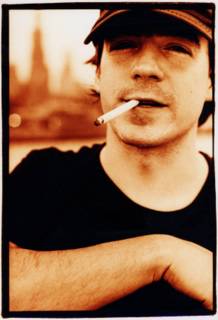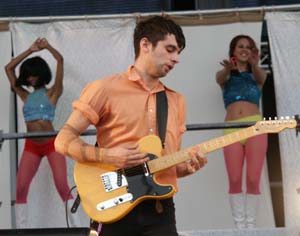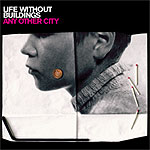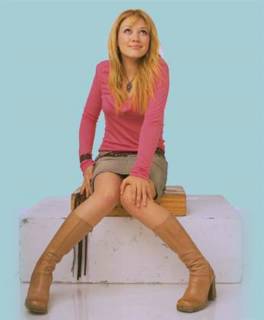At the age of 14 in the year of 1989, I gave up on my dream of becoming a
major league baseball pitcher. I was a lefty pitcher for the traveling “B” team, and on one particular day some neighboring small-town kids lit me up. They were supposedly the same age as me, but they didn’t look anything like me. These kids were ogre-like, with tree-trunks for arms and oil barrels for torsos. All I could throw at the time was a 69 mph fastball—straight as an arrow. The kid who was pitching against me was 6-foot-3 and threw 82 mph with a filthy curveball that he liked to break out when we feigned to make contact on his fastball. I think the final score was 22-0, and not in our favor. I was only responsible for about half of those runs, but I did give up two gopher balls (both to the opposing pitcher, who could hit a little, too) and struck out twice at the plate.


On that day, I could have channeled my anger along with what inner-strength I possessed and decided to make it my life’s mission to beat the snot out of
thick-chested, pea-brained baseball players. But, I had other priorities and an overabundance of interests—girls (Lana Berardi), basketball (tallest kid in 8th grade that could successfully dribble the ball off the court and not his knee), and music (anyone remember
Mother’s Milk?)—which I could easily divert my attention toward in my everlasting occupation with defining my life.
Yes, even at the age of 14 I spent far too much time thinking—rarely out loud—about what I had to do to feel comfortable in my own skin. I had all this passion and imagination, but no real, tangible thing to channel it into. I had just begun to get into music, partially because I found it mildly amusing (and possibly arousing?) that the girl whose locker was right next to mine spent most of her school day pretending to be
Axl Rose’s girlfriend, and partially because of junior high school rebel Wayne Hayes. Hayes told just about every one of his teachers to fuck off at some point or another that school year. Like most of my science class, I wish I would of turned his solo “fuck you” into a chorus when he spouted off at the haggard, pruney and ever-so-bitchy Mrs. Scantron (as we called her). Every day in P.E., against the school’s rules, Hayes sported the same faded Faith No More t-shirt. Sure, it may not sound like a big deal, but keep in mind that I grew up in a small Midwestern town of 14,000, isolated from any big city of note and leaning on K-Mart as our cultural sponge. Hayes was a badass motherfucker—a long-haired skate punk in a town with ten stoplights.
Yet, Hayes isn’t really responsible for much—if any—of my musical development as a youngster. He just opened my eyes to a world that I had been isolated from (yes, I grew up without MTV). A significant development did occur for me at the age of 15, when I discovered my two older brother’s record collections. There was a 13-year gap between me and my closest sibling, so to put things in perspective my older bro was buying
Led Zeppelin I on vinyl before I was even an “oops” in my parent’s eyes. Through their collections I was introduced to rock and roll legends—Hendrix, Cooper, The Stones, The Who, Aerosmith—and the alternative mainstream—The Clash, Bob Marley, Squeeze, The Cars, The Police, The Ramones. Without my older brothers, I doubt I would have ever developed such a love affair with music. But I don’t want to give them too much credit for their actions. After all, it’s not as if they encouraged me to listen to their records. Rather, their records were sitting in my parent’s basement, long-since abandoned and just waiting for me to discover them. So, with that—their inaction, their willingness to part with the musical heritage of their youth—they led me to the path of discovery that I still find myself aimlessly wandering down on October 22, 2004.
It was love at first sight. I spent a year just devouring everything they owned—from CCR to
Big Country—without any real knowledge of what the music press had deemed to be “good” or “bad”. That would come later. First, there was work to do… I spent—and my longtime friends can attest to this—countless hours and about twenty 90-minute cassette tapes attempting to record the "Top 500 Rock and Roll Songs of All Time". Yes, I was that stupid. (I would like to think back on that as a moment of simple naivety, but the facts are the facts.) Utilizing only the records that I had in front of me, I first constructed the list of 500 songs, fretting over whether “Iron Man” was a better candidate for the Top 50 than “Tainted Love”. (Some might get a good laugh out of the truth that The Sex Pistols, Television, and The Velvet Underground—along with countless other heralded bands—were nowhere to be found on those tapes.) I don’t recall what my number one rock song of all time was, but I’m sure it was probably a worse selection than VH1 would make, and that’s saying something.
I wish I still knew the whereabouts of that masterful collection of rock’s brightest moments, but alas they’ve fallen into the abyss that is either my parent’s basement… or a landfill. And it’s probably for the best that I don’t relive that moment again. It’s better to just move on and unsuccessfully attempt to erase that moment from my timeline.
I’ve spent the past 13 years continuing my lustful addiction to Mistress Music. I tend to be far more historically focused than the casual fan, something that I attribute directly to the goldmine of old records that I dug up as a 15-year-old which taught me that looking back is often better—and more fun—than looking forward. And I tend to be what I call a fringe collector. I’m no obsessive-freak when it comes to tracking down original copies of obscure seven inch records, and I don’t have a room in my home that’s filled to the brim with CDs. But, I do spend a good portion of my yearly income—more than I care to share—on purchasing recorded music. I like to keep up with the times, but I’m more interested in studying the past than I am in cashing in my
hipster cred at the trendy indie rock bank on Fridays.
It’s that love of old music—which seems to provide me with a galaxy of possibilities—that keeps my motor running at age 28. In part, it was my brothers’ inability to discover that galaxy—along with life forces like marriage, kids, a mortgage and a career—that caused them to abandon their relationship with music. (Today, one of them still listens mostly to that same old classic rock but hasn’t bought a new album in years; the other has switched from The Clash to
contemporary country.) Oh well for them. I became a welcome benefactor at their expense.
I spend a good deal of time—at work, in the shower, falling asleep at night—pondering what my life will be like in ten years and whether I’ll still have this indispensable desire to listen to music. I suspect it’s not going anywhere anytime soon. Or at least, I’m not ready to let go just yet. Thinking along those same lines, I also ponder my future in terms of a career—the job that pays the bills. I hate what I’m doing right now. My displeasure doesn’t come directly from the fact that I’m a
book editor—or even a sports book editor—but from the fact that I work for a company that doesn’t share my values, can’t earn my respect, and hence will never provide me with a satisfying job.
Luckily, I consider this job nothing more than a stopgap. But it’s what is on the other side of that invisible gap that causes me great concern.
What will I do with the rest of my professional life and will it provide me with grief or happiness? Will I dread going into work every day, or will I thank my lucky stars when the alarm goes off at 7 a.m.? These are certainly questions that many of us grapple with, so I know I’m not alone in this struggle to define my life. (Yes, I do consider my professional life to be an extremely important part of defining my entire life. After all, I spend at least 40 hours a week earning my paycheck, and my job has an immense impact on the rest of my life—whether it’s from a monetary or psychological standpoint.)
Of course, I know I wasn’t foolish in giving up my dreams of being a major league pitcher. (Although as a lefty I might have had a decent chance to stick with a major league team as a reliever, something the Cubs, for example, could have used this year.) And I’ve also accepted the fact that at the age of 28 and the height of 6-foot-1, my days of playing professional basketball are probably numbered at best. So, that leaves me with girls and music, I suppose. Barring more naivety (read: stupidity), I hope to have the “significant other” end of things settled. Which leaves me with music. Anything is possible (well, maybe not while living in Champaign-Urbana, but you catch my drift…), and maybe it’s time that I consider the rest of my life in the same way that I consider the world of music—as a
vast galaxy still left to be discovered. Maybe one day I’ll re-record the Top 500 Songs of Rock and Roll. And maybe—just maybe—I’ll get paid to do it?
That’s wishful thinking, and that’s my new attitude on life. That’s why I started this blog, to really define how emotionally attached I am to not just listening, but also writing about music. When I was 18 I created a mental list of three ideal jobs that I would love to have during my life. They are: 1) record store owner, 2) music editor, and 3) publisher/editor of a music magazine. Now, I don’t consider the two photocopied issues of my long-defunct fanzine to meet the requirements of No. 3. But, I am lucky enough to have already scratched No. 2 off the list thanks to my time at the local weekly. And, the more I think about it, the more No. 1 doesn’t seem to be the most feasible of dreams. I’m all for dreaming big, but owning a record store in today’s musical climate seems more like a death sentence than the opportunity of a lifetime. (Unless, of course, I had an investor with deep pockets, a love of the arts and no interest in a return on the investment. Shit, anyone have
Teresa Heinz-Kerry’s phone number?) So, that leaves me with No. 3. Time will tell…but while I wait, I'm going to have some fun with this little corner of cyberspace. Hopefully, you will too.









